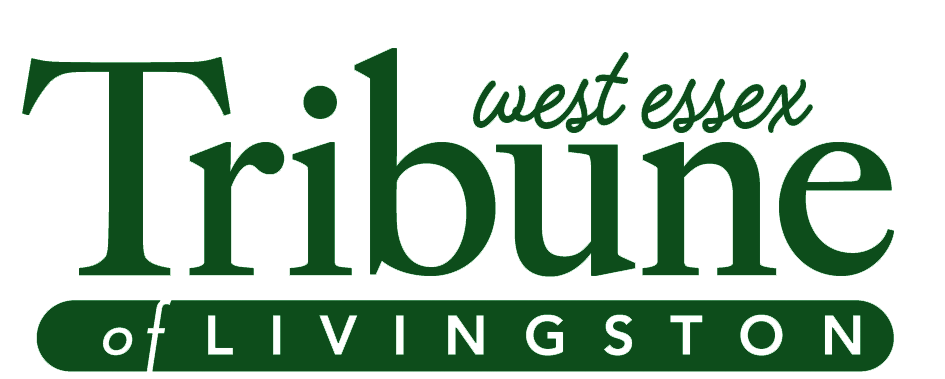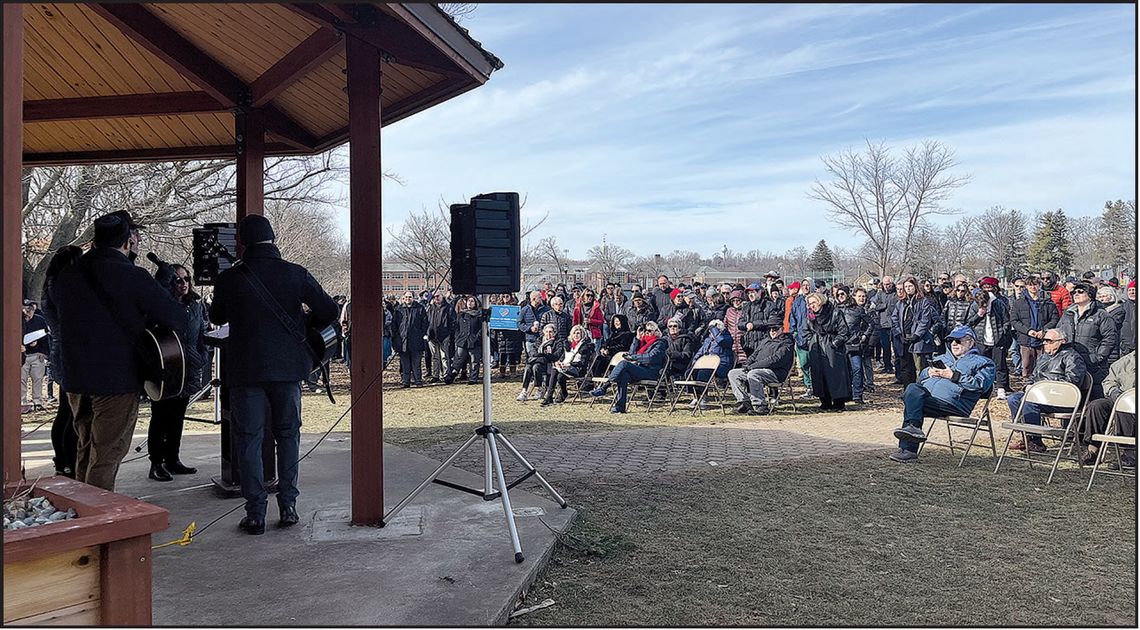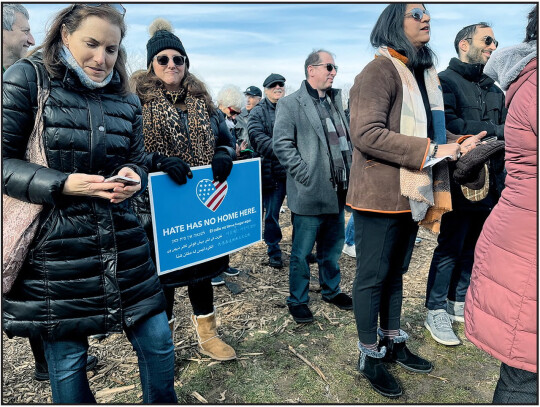Residents in Livingston and across Essex County gathered at the Oval’s gazebo on Sunday, February 5, in a rally, “Strength and Courage Against Anti-Semitism.” The event came just one week after an attempted firebombing of Bloomfield’s Temple Ner Tamid.
The afternoon featured a series of speeches, all of which were segmented by collective songs of prayer. Sponsors of the rally included: Temple B’nai Abraham; Congregation B’nai Jeshurun; Temple Beth Shalom; Congregation Etz Chaim; Synagogue of the Suburban Torah Center; and the Livingston Clergy Association, which organized the event. The groups invited local and state officials, most notably Congressman Josh Gottheimer and New Jersey Senator Nia Gill, who were among many to speak.
Religious leaders of surrounding congregations shared personal accounts of oppressive attacks in both violent and nonviolent forms, highlighting ways to identify anti-Semitism today. Through this dialogue, protesters underscored a need for interfaith, communal support and comprehensive understanding of structural hate.
“That is the secret and that is the antidote to the hatred in the world,” Rabbi Robert Tobin ofWest Orange’s B’nai Shalom said. “The incident at Ner Tamid, unfortunately, is a pattern... and a pattern not from distant places suddenly showing up here, but [one that] has been here as well.”
Rabbi Tobin, who is chairperson of interfaith outreach for the Jewish Community Relations Council, explained that his work involves partnering with and showing up for people across religious affiliations.
“This is the sacred work we have to do,” Rabbi Tobin said. “The Livingston Interfaith Clergy Association is a model in our region for this kind of ongoing care, concern, development.”
Livingston’s Interfaith Clergy appears on the monthly show “Clergy Corner.” In half-hour episodes, a panel of members representing different faiths discusses a topic of “interest, concern and relevance,” according to the Livingston Clergy Association’s website.
“Whenever something terrible happens to one of our communities, it affects all of our religious communities, and we need to just continue to support each other,” Rabbi Simeon Cohen of Temple Beth Shalom and vice president of the Livingston Interfaith Clergy Association said. “We’re actually pretty good in that sense.”
During his speech, Mayor Michael Vieira echoed the importance of communal support.
“Anti-Semitism violates the right to freedom of religion or belief. Not just to Jews, but to everyone who values freedom, compassion and humanity,” he said.
Mainstream Influences
According to the Anti-Defamation League (ADL), the rise of white supremacist propaganda has led to a 27 percent increase of anti-Semitic messaging in 2021. In recent months, high-profile figures with large followings have faced public backlash for spreading anti-Semitic rhetoric on their platforms.
“Trump’s presidency normalized being anti-Muslim and anti-Semitic … When people get permission to hate one religion, they can easily hate anybody who is not like them,” Saba Kahn said in a speech during Sunday’s rally. She is a member of several committees in Livingston, including the Social JusticeAdvocacy Committee and Livingston Committee for Diversity and Inclusion. “When you see hate, disrespect toward other religions, racism or bigotry, the lessons of history are clear.”
Kahn’s speech, specifically her decision to directly reference Trump during the rally, was met with at least one dissenting voice from the crowd and ignited social media discussion in the days following the event.
There are local elected officials doing their part to combat anti-Semitism, like Gottheimer, who last month led a bipartisan House resolution condemning anti-Semitic attacks from celebrities and public figures. On Sunday, he spoke to the relationship between rapper Kanye West and white supremacist Nick Fuentes.
“We saw someone project ‘Kanye is right about the Jews’ onto the outside of the Jacksonville Jaguars football stadium, ” Gottheimer said. “When celebrities do this on social media, it gets worse. The numbers go up.”
Boiling Under the Surface
In 2021, the ADL’s annual audit found a record-high 2,717 reports of anti-Semitic incidents in the United States since 1979. Compared to the year before, attacks on Jewish institutions were raised by 61 percent and incidents at K-12 schools increased 106 percent.
Conversations that parse through structural oppression and its iterations today, however, are often absent from public education, even though its ramifications trickle down to the local level.
At Livingston Public Schools, there have been a total of five reported anti-Semitic acts this school year alone. In the most recently reported incident, students found swastikas scrawled on classroom desks and on the bathroom stalls.
“There is a lot of [hate] under the surface,” Stacey Abenstein, chairperson of the Social Justice Advocacy Committee and vice president of New Jersey Democratic State Committee Jewish Caucus, said. “The kids did not invent the hate. They learn the hate.”
Speakers at Sunday’s event agreed that there is a lapse in dialogue surrounding anti-Semitism and its history within schools. As the gap widens, affected communities grow more vulnerable to disinformation. More than 30 states do not mandate any teachings of the Holocaust, and a 2020 Conference on Jewish Material Claims Against Germany survey indicates that 11 percent of Millennial and Gen Z generations see Jewish people as responsible for the genocide.
Recently, school boards across America have stripped down or wholly banned books and curriculum centering contemporary topics such as critical race theory and LGBTQ+ studies. Last week, the College Board removed works associated with select Black scholars and writers from the African American Studies Advanced Placement course. This includes topics on Black feminism, Black Lives Matter and the queer experience.
Aprogram which brings in diverse community groups to work with Livingston students may be on the rise, according toAbenstein, who has been in communication with Board of Education member Parul Khemka and Steve Kroll of the 20/20 Vision’s civility subcommittee.
“I hope it has many concentrations and not just anti-Semitism,” Abenstein said. “Our kids need more exposure.”




